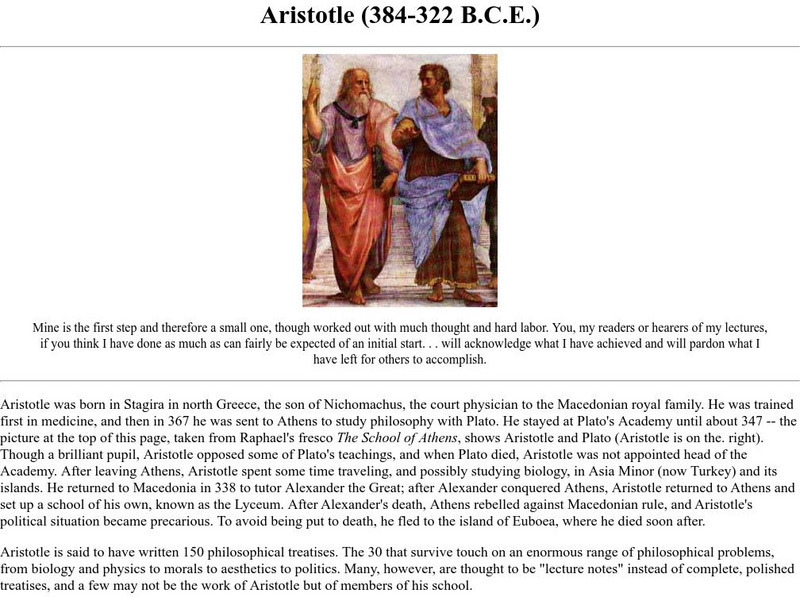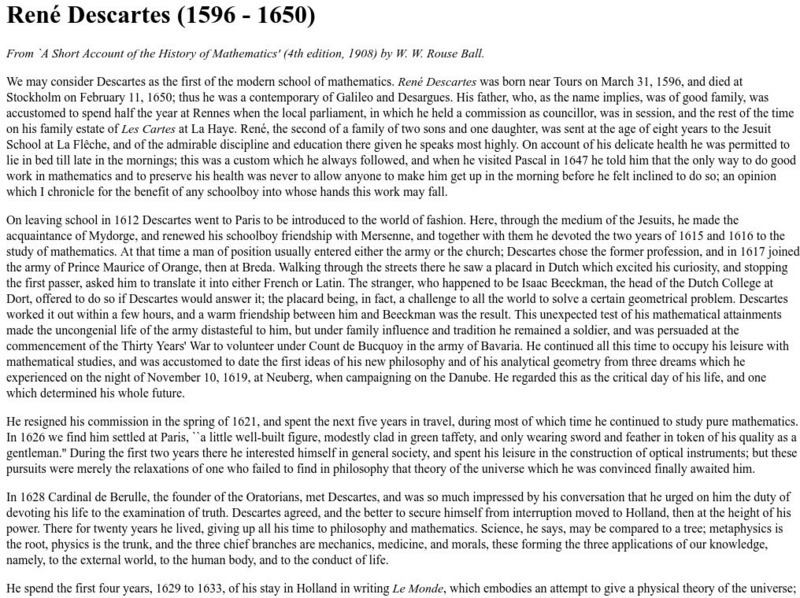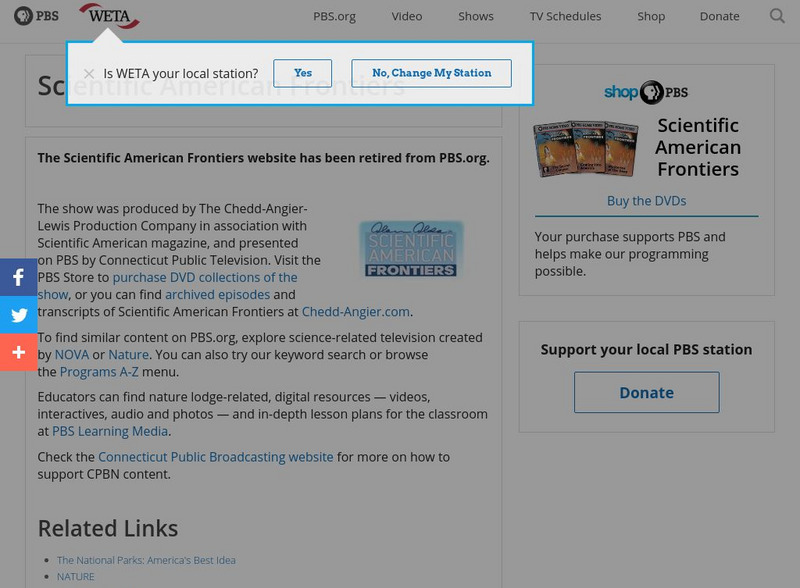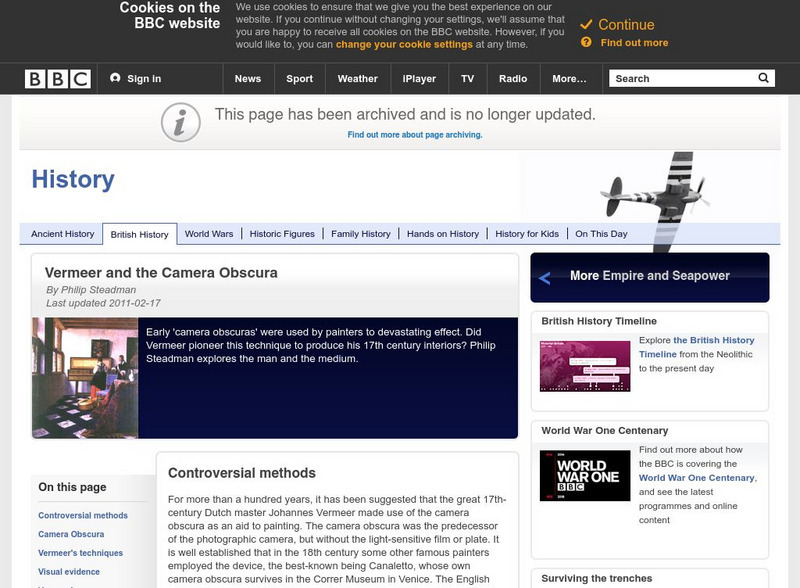Hi, what do you want to do?
Discovery Education
Discovery Education: Lesson Plans Library K 5
This resource presents a lesson plan library which holds hundreds of lesson plans organized by grade level and subject area. Often rooted with an Internet research piece, each lesson plan contains specific objectives, procedures,...
American Museum of Natural History
American Museum of Natural History: Ology: See the Light
Reflection, refraction, and the colors that make up white light is explored through lab activities after reading a brief background about light energy.
Ducksters
Ducksters: Physics for Kids: Telescopes
Kids learn about telescopes in the science of physics including lenses, mirrors, refracting, reflecting, the history, and the Hubble Space Telescope.
University of California
Ucmp: Aristotle
The life and philosophical treatises of Aristotle (384-322 BCE) are surveyed, including his writings on biology, zoology and physics.
National High Magnetic Field Laboratory
Magnet Academy: Robert Millikan
Robert Andrews Millikan was a prominent American physicist who made lasting contributions to both pure science and science education. He is particularly well known for his highly accurate determination of the charge of an electron via...
Trinity College Dublin
Trinity College: Rene Descartes (1596 1650)
Events of Rene Descartes' life are presented in a timeline form. The biographical information is taken from "A Short Account of the History of Mathematics" by W. W. Rouse Ball (4th Edition, 1908).
Internet History Sourcebooks Project
Fordham University: Modern History Sourcebook: Principles of Natural Philosophy
This site from Fordham University is an exerpt from Newton's famous "Principia."
Famous Scientists
Famous Scientists: Aristotle
A detailed biography of Aristotle (384-322 BC). Discusses his early life, his education, his relationship with Alexander the Great as tutor, the breadth of his work in various science disciplines, the school he established in Athens, and...
PBS
Pbs Teachers: Scientific American: Dragon Science: Time Travelers
Explore the work of archeologists and anthropologists by building a 3-D clay representation of a human skull to look for clues to a person's physical form, ethnic origin, behavioral patterns, health history and social standing.
Science Struck
Science Struck: Sequent Occupance: Definition and Some Examples
Sequent occupance refers to the imprint left on a region by successive cultures throughout its history. The concept is described here and examples of places around the world are provided.
BBC
Bbc: Vermeer and the Camera Obscura
An interesting viewpoint written by Philip Steadman on the controversial subject of Vermeer using a Camera Obscura to trace and create his paintings. There is factual evidence as well as a physical description of the Camera Obscura.
Other
Discover Magazine
Discover Magazine brings you the world of science: the latest research news, enhanced versions of articles, and a full-text archive.
Institute and Museum of the History of Science
Museo Galileo: Aristotle 384 322 b.c.e.
A brief look at the life of Aristotle followed by a short discussion of his ideas about physics.
Khan Academy
Khan Academy: Gallery: Geology
See the wonders of the world in this gallery of the features and physical processes of Earth.
Ducksters
Ducksters: Astronomy for Kids: Space Exploration Timeline
Kids learn about the timeline of the history of space exploration including early astronomy, astronauts, spacecraft, planets, and the Moon.
Wolfram Research
Wolfram Science World: Phillipp Lenard
This site from ScienceWorld mostly describes Lenard's most notable scientific discoveries and contributions. Includes minimal biographical information and links to additional information on related subjects.
Other
Spotsylvania County Schools: Curriculum Maps
This site features an outline of how to implement the use of curriculum maps into a school district curriculum program.
Ducksters
Ducksters: Astronomy for Kids: Constellations
Kids learn about the constellations in the science of astronomy. These stars that form patterns when viewed from the Earth have been studied since ancient times.
Other
Teach With Movies: Lesson Plans Based on Shorts and Clips
Links to many video-clip based lessons in the areas of health, English language arts & drama, mathematics, music, biology, earth science, inventions, astronomy, physics, chemistry, U.S. history and culture, and world history and...
Read Works
Read Works: Field Trip
[Free Registration/Login Required] A literary text about a boy named Jeremy who got sick on the day he class was going on a field trip. A question sheet is available to help students build skills in reading comprehension.





















